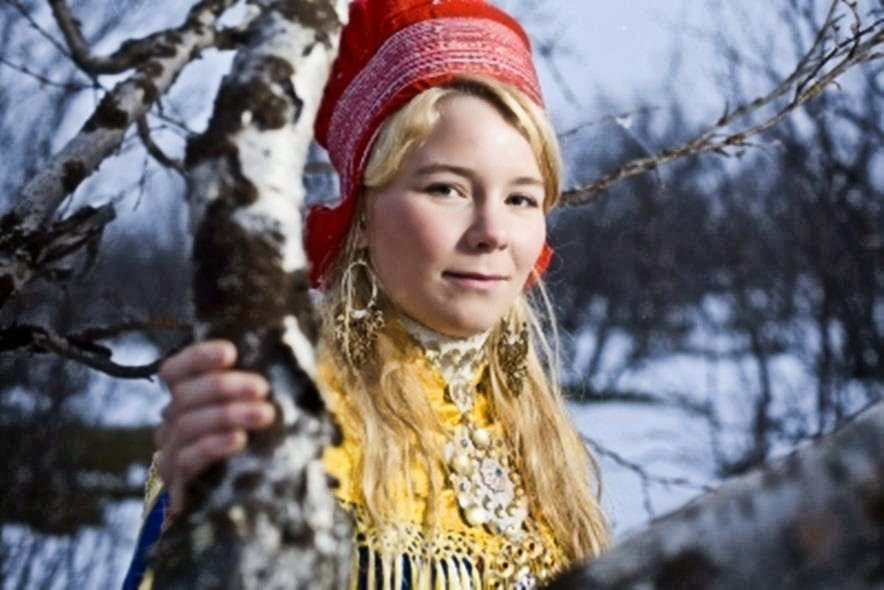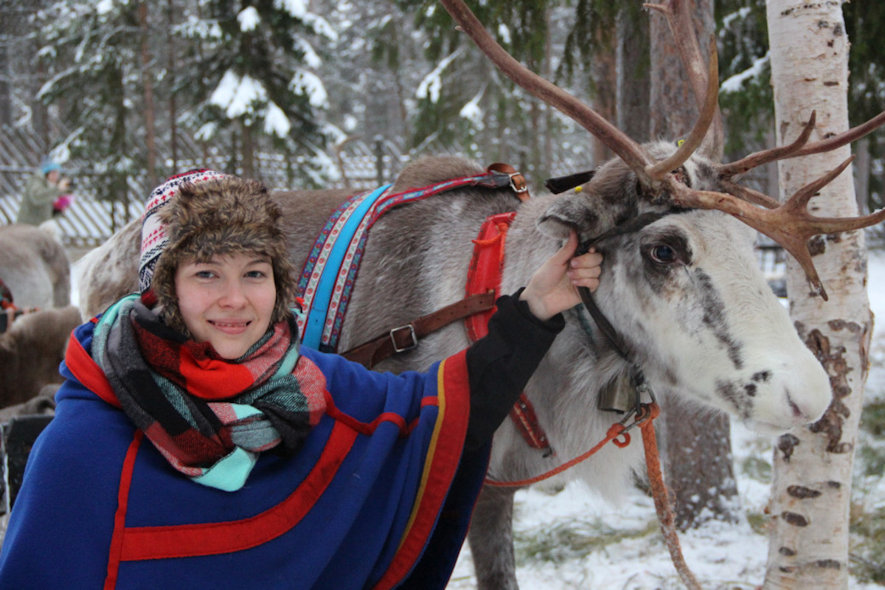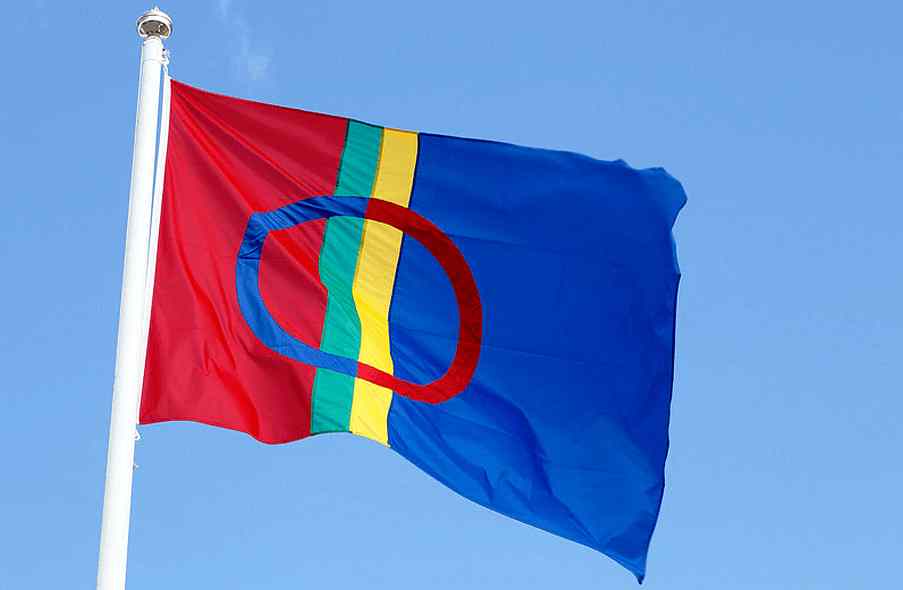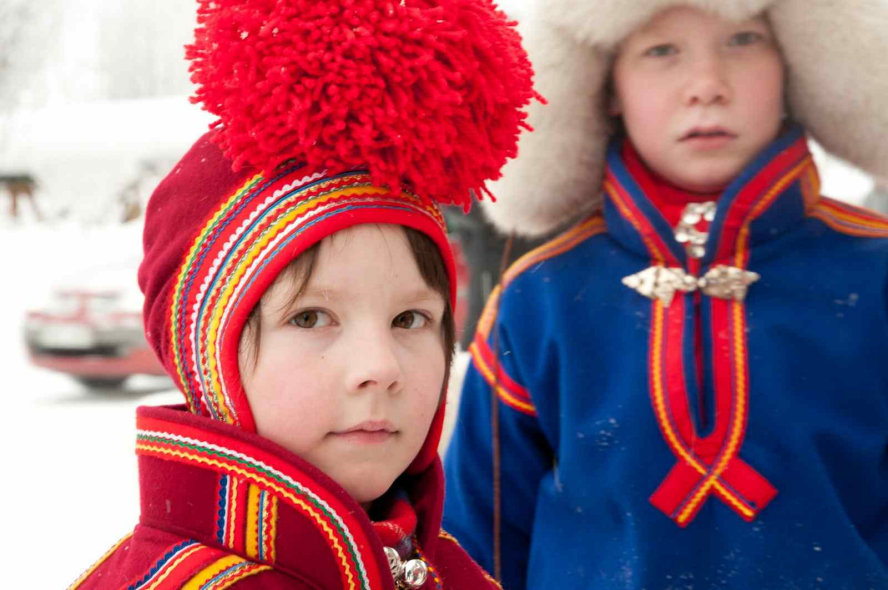Samen or Sami
The Sami are originally nomadic people living in Lapland. They used to be known as Lapps, but this term is considered offensive by the Sami. The Sami are the only recognized indigenous people in Europe.

Today they have their own parliaments in Norway, Sweden and Finland, the Sameting, which has a say in matters concerning the Sami and their area of residence. Most Sami live in Norway, about 50,000. About 20,000 in Sweden, 6,000 in Finland and 1,800 in Russia.
There is no Sami standard language. Spoken Sami has many, very different, variants spread over a number of separate languages. Sami is related to Finnish and Estonian and belongs to the Finno-Ugric language family.
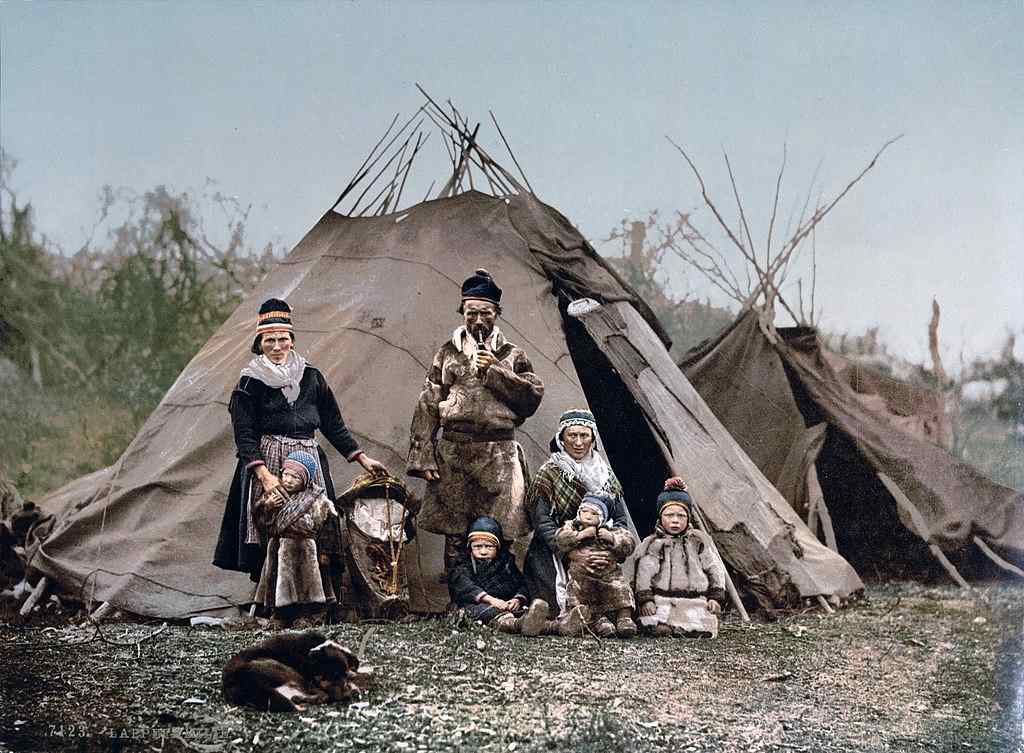
Some of the Sami traditionally lived as nomads who followed reindeer herds in their annual food migration. The reindeer provided the Sami with milk, meat and skins. In addition, they served as draft animals for the sled, the pre-eminent means of transport in this area. Other Sami traditionally lived from fishing. Hunting was also an important activity.
The nomadic Sami lived in tents (lavvu) that were easy to break down and transport. Only in winter did the Sami and reindeer stay in one place. Instead of tents, they lived in low domed huts, which were covered with earth to protect them from the severe freezing cold. Further south, the traditional housing consisted of square wooden huts.

Since the 17th century, the Sami way of life has changed significantly. Only a small percentage still lead a nomadic existence, and then usually only for part of the year. Most Sami have established themselves as fishermen, farmers or self-employed entrepreneurs or have a regular job. Some of the Sami have become completely absorbed in Scandinavian society and their lives today differ in little from that of other Scandinavians, but a significant proportion of them strive to develop their own culture and language. The traditional colorful clothing of the Sami is increasingly considered part of folklore, as is the traditional music of the Sami, the so-called joik.
